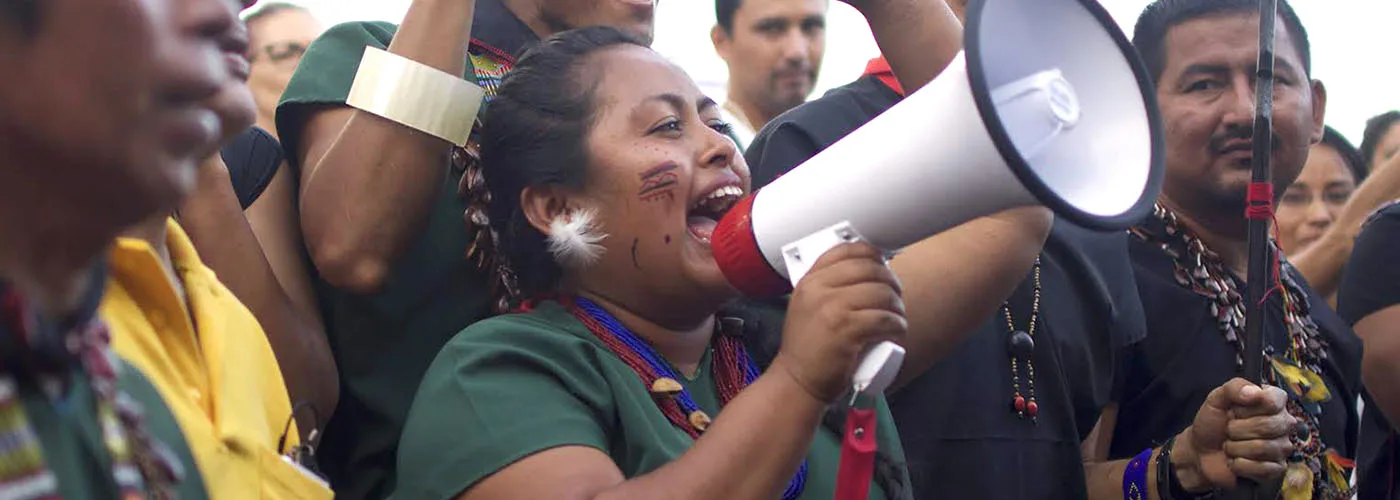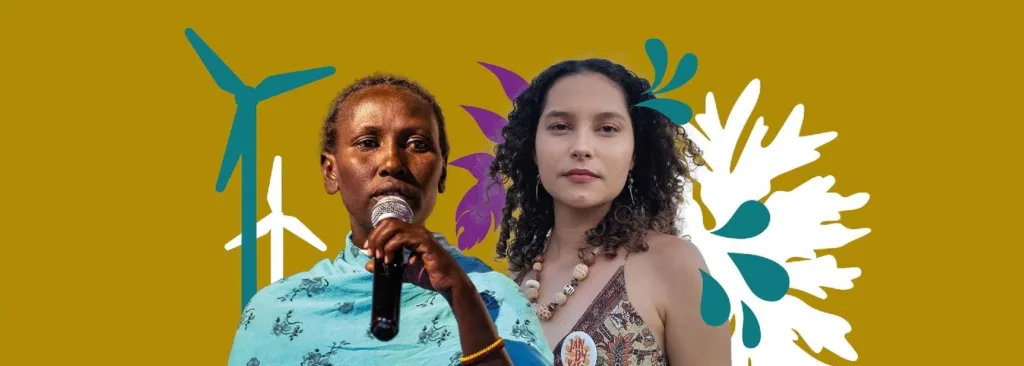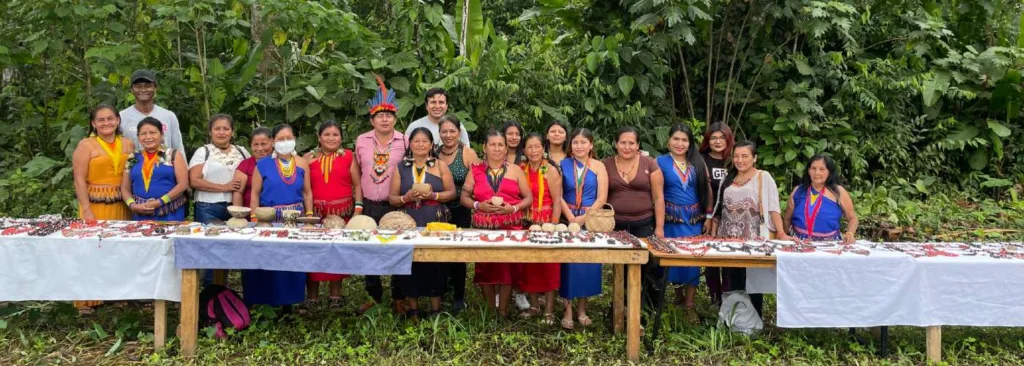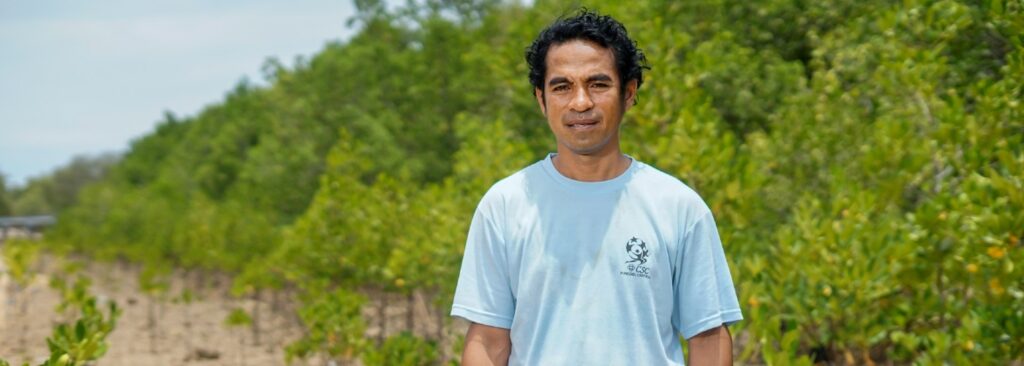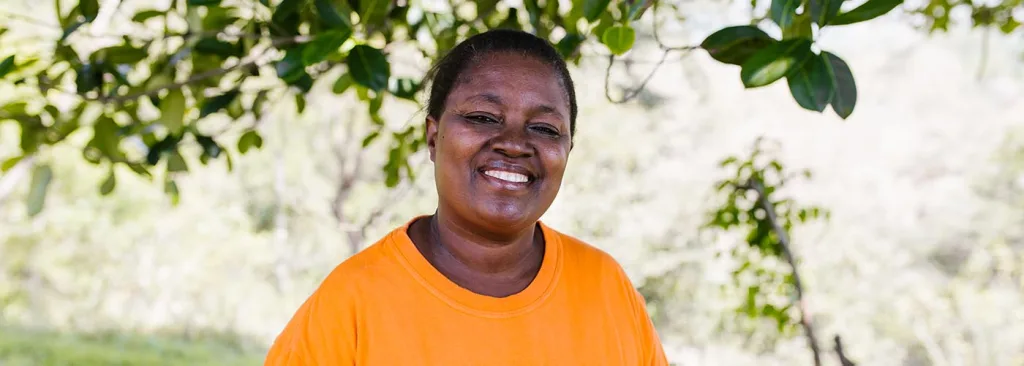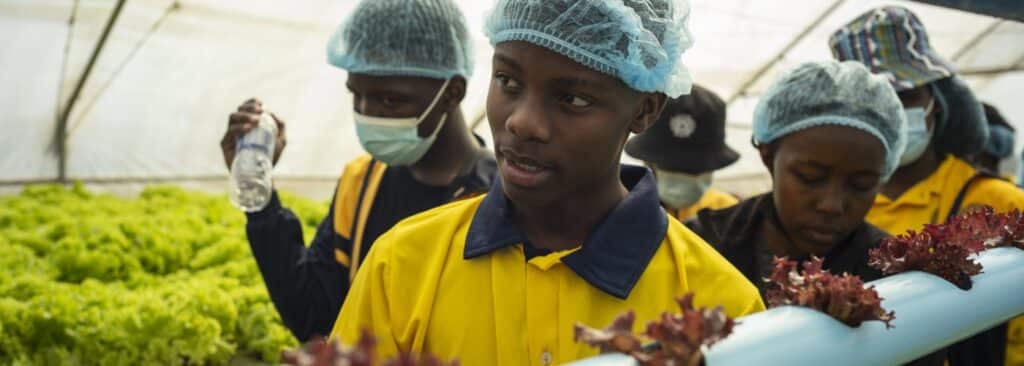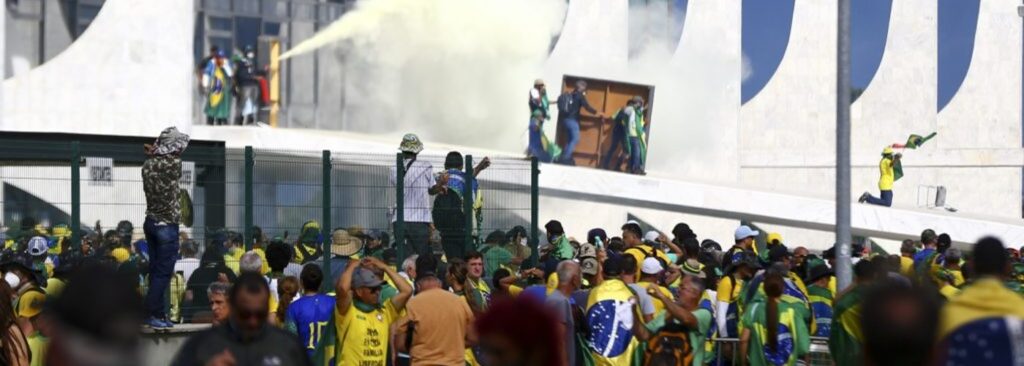Indigenous Amazonians successfully fight for their rights
Since 2017, Indigenous leader Alexandra Narvaez has been fighting against the destruction of her habitat, the Ecuadorian Amazon. With support from our All Eyes on the Amazon program, she and her community achieved an unprecedented legal victory. A provincial court of Ecuador declared 52 mining licenses granted by the government null and void. This ruling protects 79,000 hectares of pristine rainforest.
The Amazon is the largest rainforest in the world and plays a crucial role in combating global warming. But deforestation and a growing oil and mining industry mean that more and more nature is being lost. This is not only a disaster for the climate, vegetation, and animal life, but also for the approximately 400 Indigenous groups who live there, about 2.5 million people. Their habitat is being swallowed up by oil extraction, mining and deforestation.
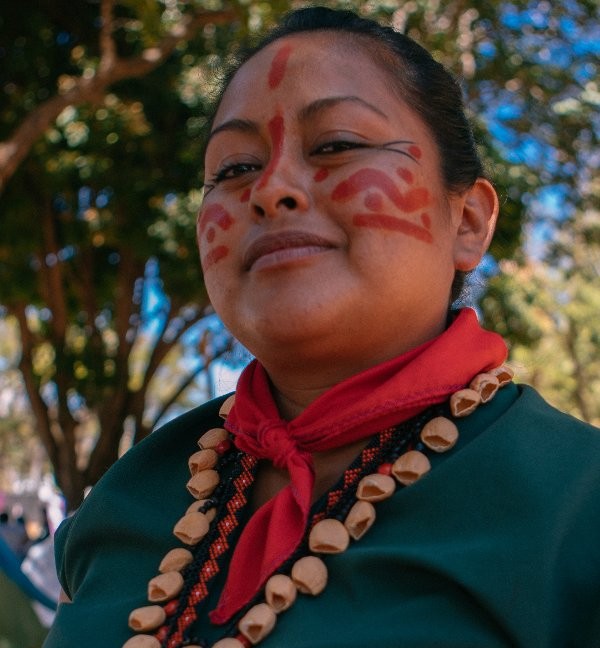
“Thanks to the program, we received legal assistance in filing a lawsuit against the government. And technological tools to better monitor our territory. Cameras, drones and an improved warning system for suspicious activities helped us document many illegal activities. This evidence was crucial to winning our court case.” Alexandra Narvaez
Up close and personal
For Alexandra, this is up close and personal. She belongs to the Indigenous A’i Kofan community of Sinangoe in the Ecuadorian Amazon, counting some 230 inhabitants and a territory of 63,000 hectares. This beautiful area consists of rainforest, wetlands, thousands of plant species, and hundreds of animal species like the jaguar, the mountain tapir, and the spider monkey.
Alexandra tells us how closely connected to nature her culture is. “We depend on the rivers and forests to survive. My grandfather taught me from an early age how important it is to take care of our land. He also talked about the threats it faces, such as clearing the rainforest for agriculture and grazing. I still benefit a lot from his lessons.” Her grandfather taught her something else very important: “Thanks to him I believe in myself. He always showed me that I am a strong woman who can achieve a lot. My grandfather was a great example.”
Time for action
Alexandra’s concerns about the Amazon grew as she saw increased mining activity along the Aguarico river in 2017. “With other villagers, I decided to create the Community Guard of Sinangoe, a group of volunteers that patrols our land for suspicious activities. In 2018, we discovered more and more large-scale mining operations. It turned out that the government had issued 20 permits for gold mining. And another 32 were in the works. This was a major breach of our rights. As residents, the government should have informed and consulted us in advance. It was time for action.”
Critical evidence
Our All Eyes on the Amazon program, which is ending now after five years, has supported Indigenous Amazonians in Peru, Ecuador and Brazil in their fight against deforestation, pollution and the rights violations. We worked with more than 30 local and international organizations. Their expertise provided support to Indigenous peoples in the areas of technology, Indigenous and human rights, conservation, advocacy and law enforcement.
Alexandra is one of the inspiring Indigenous leaders we have worked with. “Thanks to the program,” she says, “we received legal assistance in filing a lawsuit against the government. And technological tools to better monitor our territory. Cameras, drones and an improved warning system for suspicious activities helped us document many illegal activities. This evidence was crucial to winning our court case. The government painted us as aggressive liars but we could prove what was really going on.”
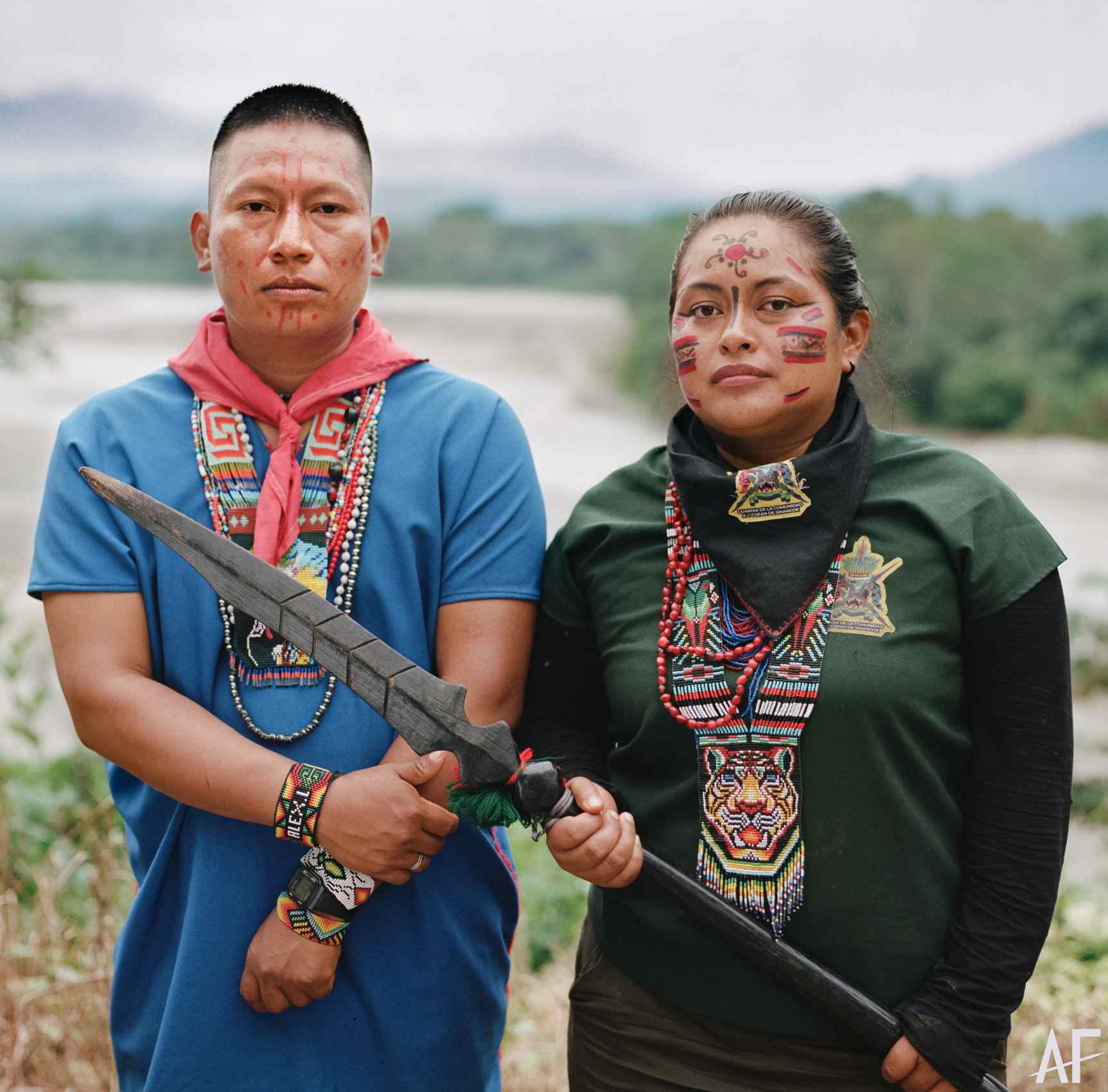
Historic victory
And that led to a brilliant result at the provincial court in 2018. “We won the case. The judges recognized the violation of our rights and the serious risk to the survival of our community that this mining posed. The 52 mining permits were annulled, a ruling that protects 79,000 hectares of pristine rainforest,” Alexandra states proudly.
Alexandra, along with another member of her community, won the 2022 Goldman Environmental Prize for this victory. This is the world’s premier award for the achievements and leadership of environmental activists. “It’s quite an honor, but the award goes to the whole community. They all worked very hard for this great result,” Alexandra says.

Results
- Thanks to All Eyes on the Amazon, almost 7 million hectares of rainforest are monitored in Brazil, Ecuador and Peru.
- Nearly 500 Indigenous conservationists have been trained to collect evidence of deforestation through our program.
- In Ecuador, this evidence led to a landmark ruling protecting 79,000 hectares of rainforest.
Constant struggle
But according to Alexandra, the battle is not over yet. “In 2021, the government issued a decree allowing expansion of mining in our territory. Once again we sprang into action. We invited the Constitutional Court of Ecuador to our territory and threatened a large demonstration in Quito if they didn’t come. They came and spoke to the residents, the people on patrol, our leaders and even the children. We explained why we believe Indigenous people should have control over their territory, what the threats are, and what will be lost if we allow mining here.”
On February 4, 2022, the court ruled in favor of the Sinangoe community: residents have the right to decide what happens on their territory. “This is fantastic news not only for us, but for all the Indigenous people of Ecuador. At the moment, we are pushing for a law that states that Indigenous communities must always be consulted in advance if anyone wants to do anything on their territory,” Alexandra says,
For everyone on this planet
She explains what the secret is behind this success: “Our community is very united, we’re all real fighters. The media also picked up our story, which brought us a lot of exposure and support. And we couldn’t have done it without the expertise of the organizations that helped us. Now we have to pass on our knowledge, unity and care for nature to future generations. So that we can stop the destruction of the Amazon in time. Not just for ourselves, but for everyone on this planet.”

